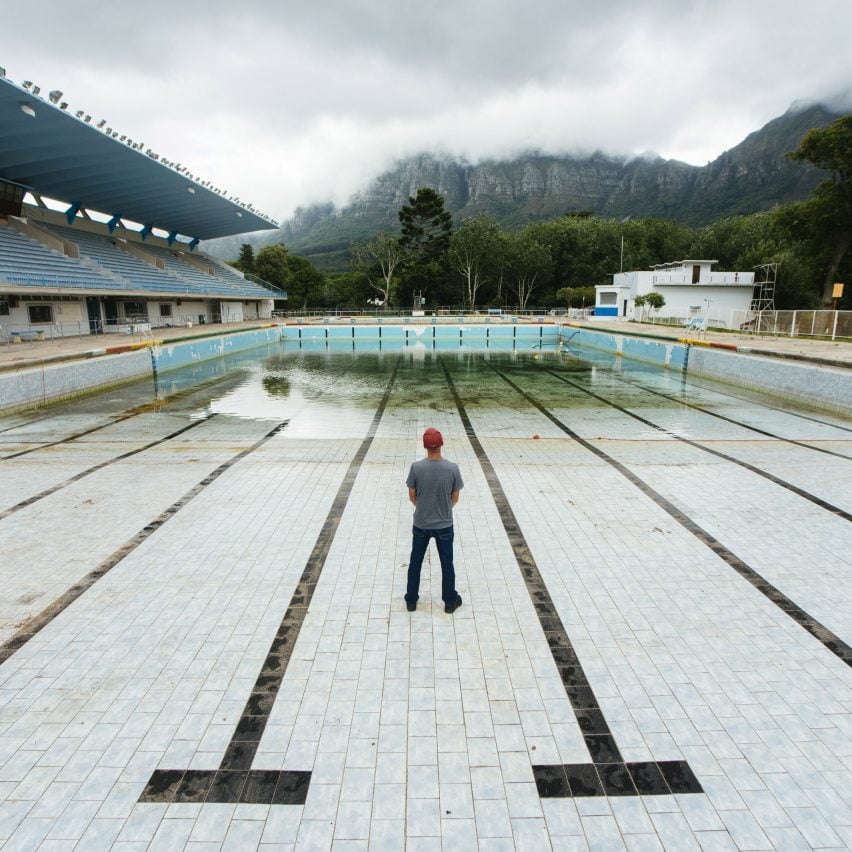
An exhibition at Hamburg’s MK&G museum examines the global water crisis and what architects and designers can do to help. Here, curator Jane Withers selects five highlights from the show and explains the stories behind them.
Water Pressure: Designing for the Future is the result of several years of research by Jane Withers Studio, which involved compiling a broad range of ideas on how to confront water scarcity from the fields of design, science and activism.
“The current water crisis is largely the result of mismanagement and overconsumption, so there is potential to rethink the systems,” Withers told Dezeen. “A multidisciplinary approach is required and architecture and design are strong components within this.”
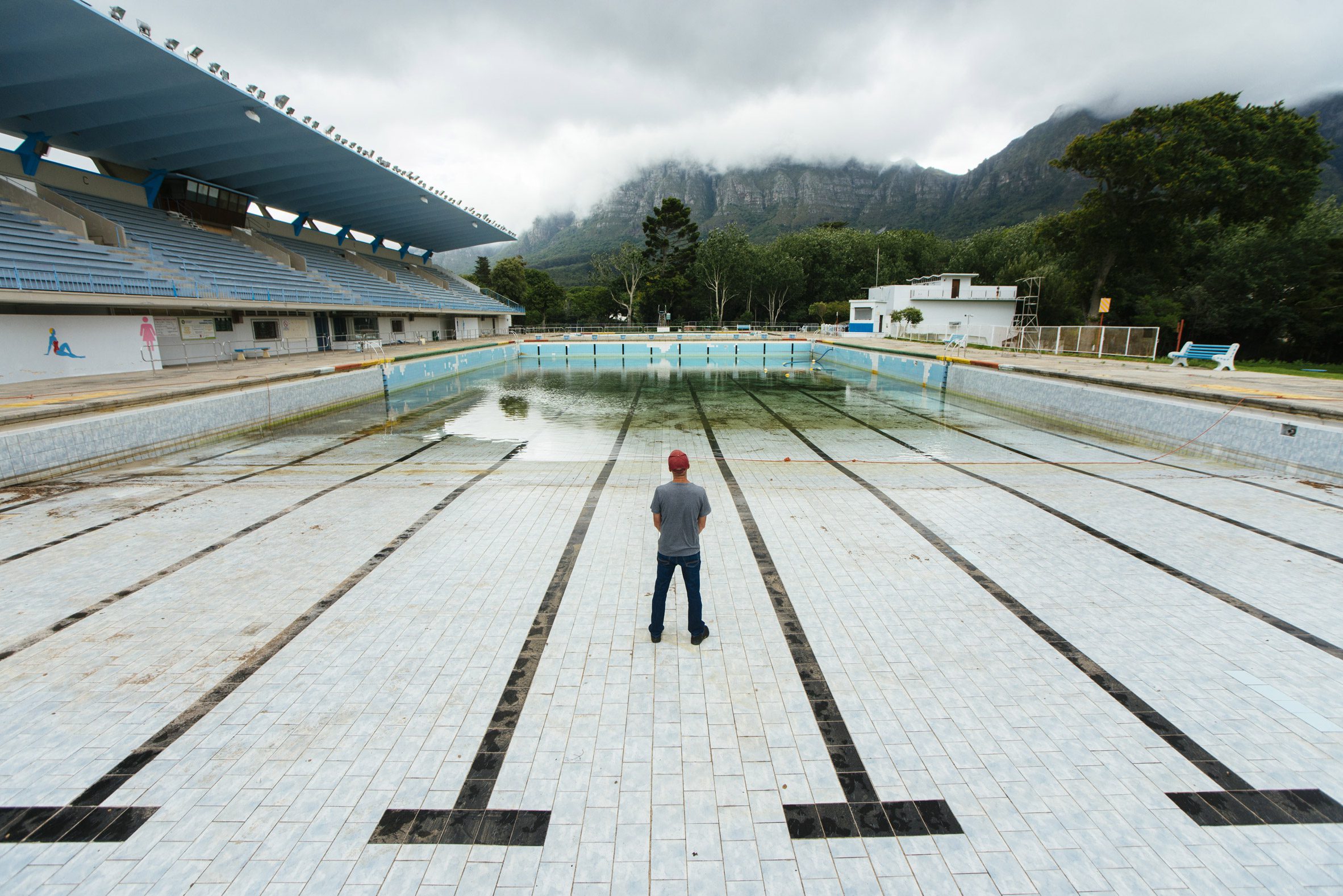
The exhibition, on show at MK&G until 13 October, is organised around five themes: Water Stories, Bodily Waters, Invisible Water – Agriculture and Industry, Thirsty Cities, and Ecosystems – Land and Ocean.
Each theme explores water as a life force and a common medium that unites humans, plants, animals and the landscape.
“We take water for granted in every way and we need to rekindle our psychological, physiological and spiritual understanding of it,” Withers said.
The projects on show range from the CloudFisher system, which harvests water from fog or clouds, to a proposal for low-cost floating schools by architecture studio NLÉ and a mural by Slovenian architect Marjetica Potrč calling for the recognition of water as a living being.
While some reflect on water’s poetic and mythical associations, others offer more scientifically-led solutions to specific problems associated with water scarcity, human-induced climate change and water justice.
Withers said she hopes visitors to the exhibition will leave with a better understanding of water and the challenges we face, as well as recognising that there are things we can all do to help shape a different future.
“We need policy change but also individual changes of mindset and a new water consciousness,” she added. “We’re very keen that the exhibition is a starting point for conversations and for campaigning about water culture.”
Below, Withers outlines five key projects featured in Water Pressure:
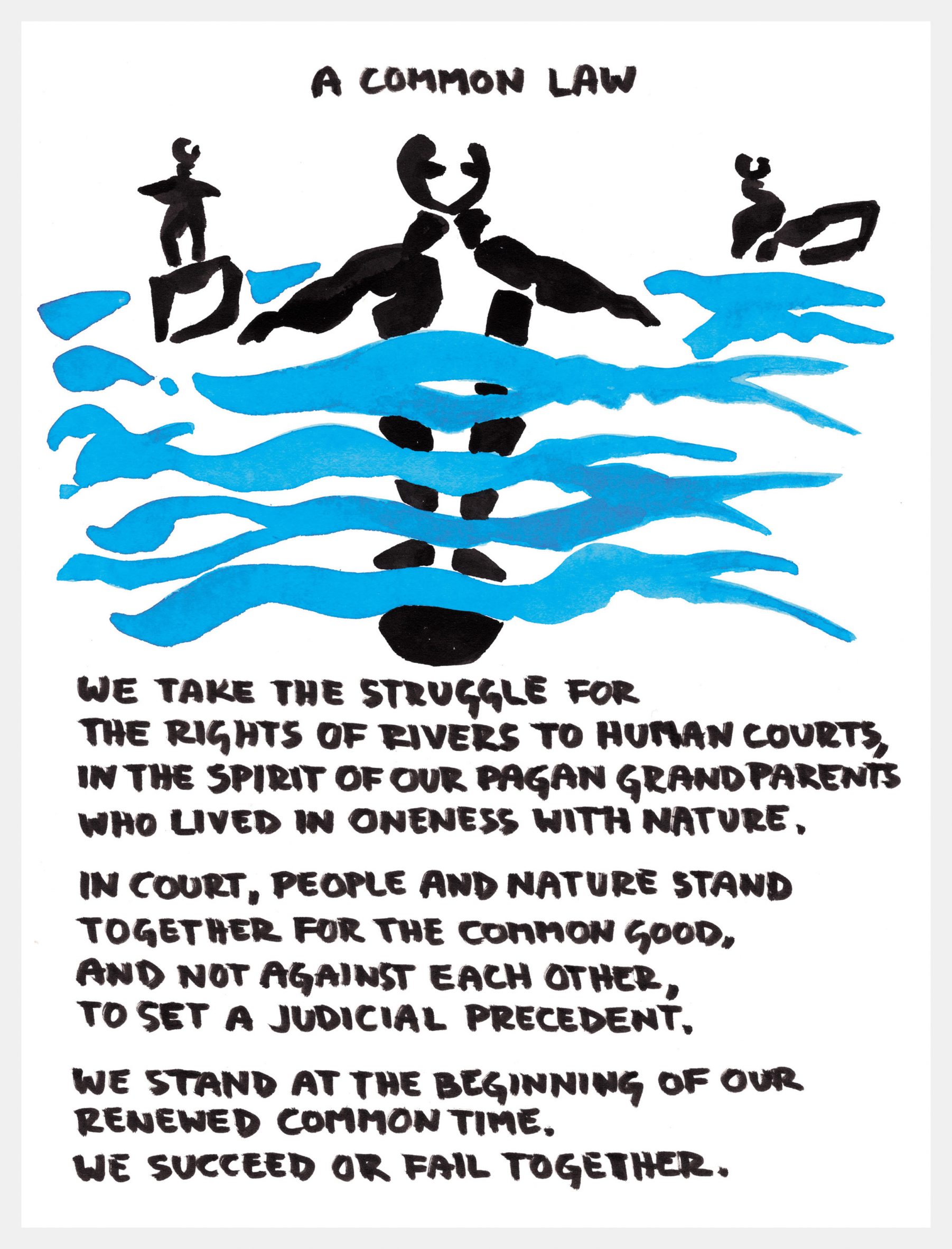
Time on the Lachlan River by Marjetica Potrč
“The first room in the exhibition is framed by two wonderful works by artist and activist Marjetica Potrč. The mural Time on The Lachlan River illustrates the campaign by Australia’s Aboriginal Wijaduri people to prevent the enlargement of a damn that could have deprived the land downriver of water.
“On the other side, the visual essay The Rights of a River tells the story of a water referendum in Slovenia in 2021, when an overwhelming majority of people voted against a law that would have allowed private businesses to exploit the country’s rivers for profit.
“This shift in thinking about rivers and how we view them not as objects to be exploited but as subjects with their own rights is fundamental to creating a more equitable water culture and sets the tone for the exhibition.”
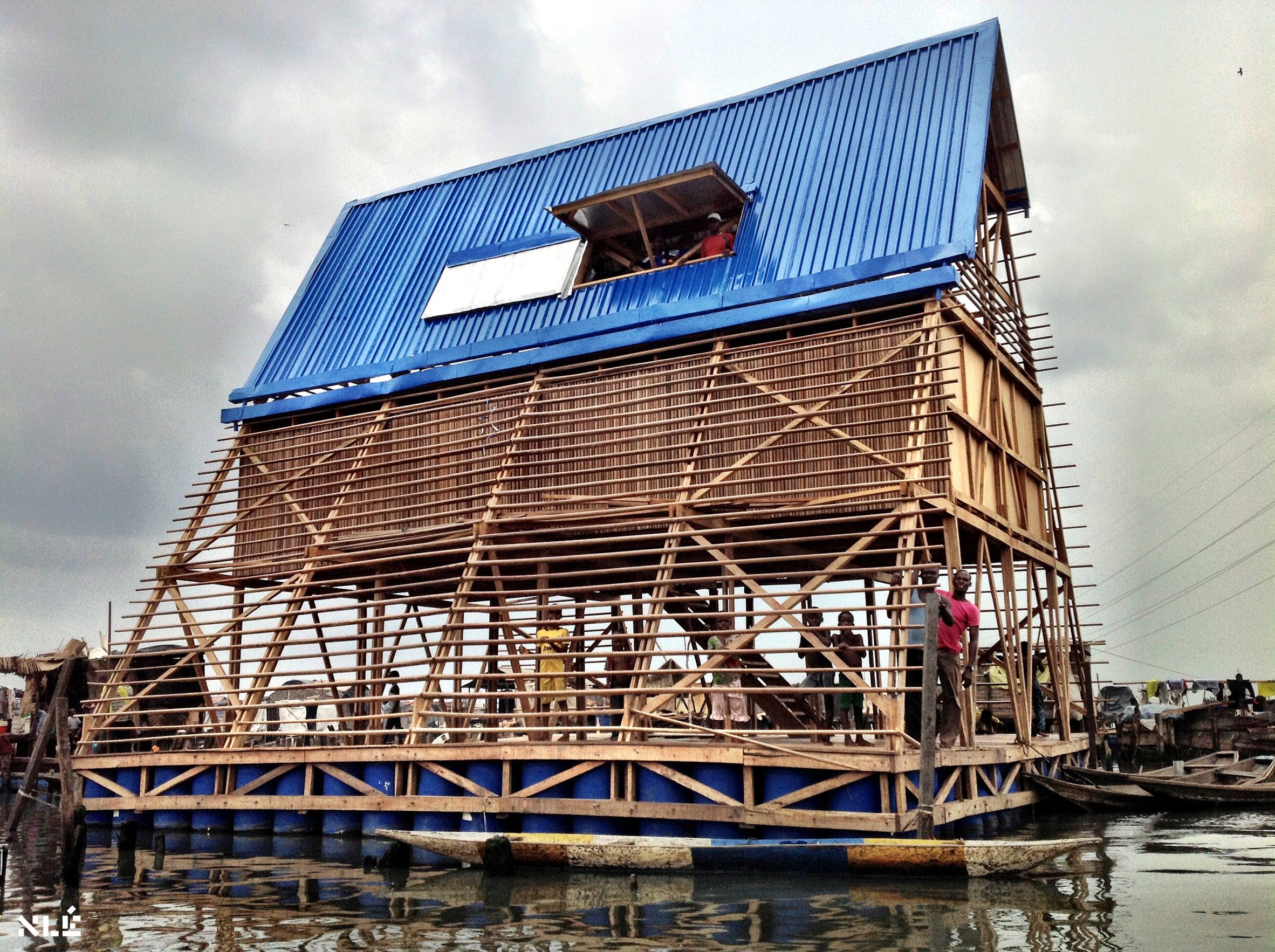
Makoko Floating System by NLÉ
“Architectural practice NLÉ has been researching the potential for floating architecture in African cities affected by rising sea levels for over a decade. Their prototype floating building was a low-cost school for the Makoko community in Lagos inspired by their vernacular floating structures.
“The Makoko School became something of a poster project for floating architecture through photographer Iwan Baan’s alluring images of kids clambering over an ark-like wooden building. It could have stopped there but NLÉ has gone on to develop a scalable prefabricated floating building system for the development of waterfronts amid the challenges of climate resilience.
“The studio is currently working on a regeneration plan for the Makoko area based on this technology, and recently published the book African Water Cities that examines the potential for waterborne living in other African cities.”
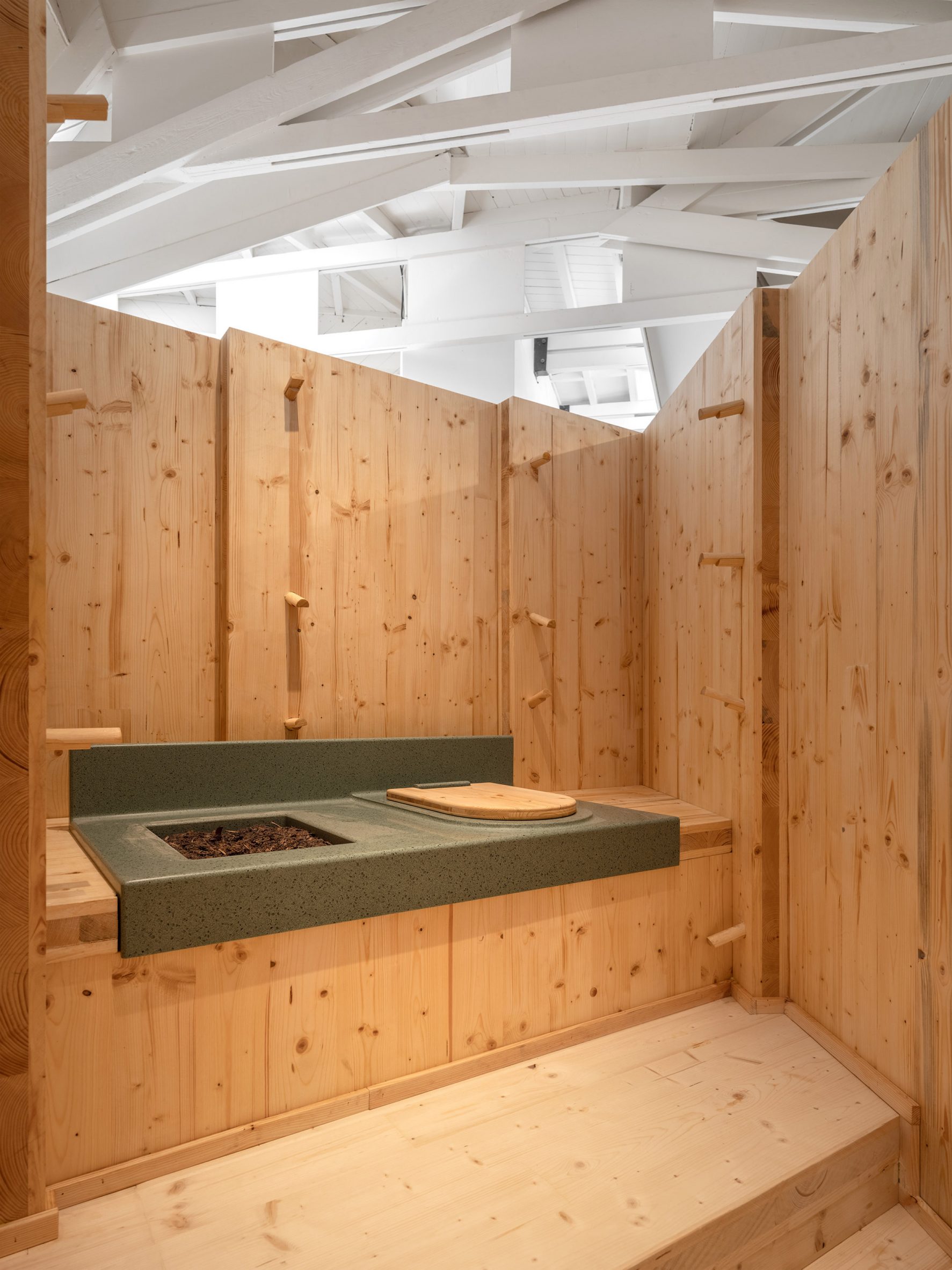
Death to the Flushing Toilet by The Dry Collective
“Death to the Flushing Toilet is a campaign by The Dry Collective that provokes a rethink of the waterborne sewage systems we take for granted. It’s madness that wealthier regions of the world use vast quantities of freshwater to flush away human waste, while two billion people still lack basic sanitation.
“In urban areas, as much as 30 per cent of freshwater is used to flush toilets and often this is drinking quality water. The Dry Collective aims to persuade architects and designers to use alternative systems.
“Taking the traditional Finnish huussi – a composting dry toilet used in rural areas – as a model, they produced a film set in 2043 that imagines a global shift where water is no longer wasted on flushing and human waste is recycled as fertiliser. The technology for circular sanitation systems already exists so the real issue is overcoming prejudices and the ‘yuck factor’.”
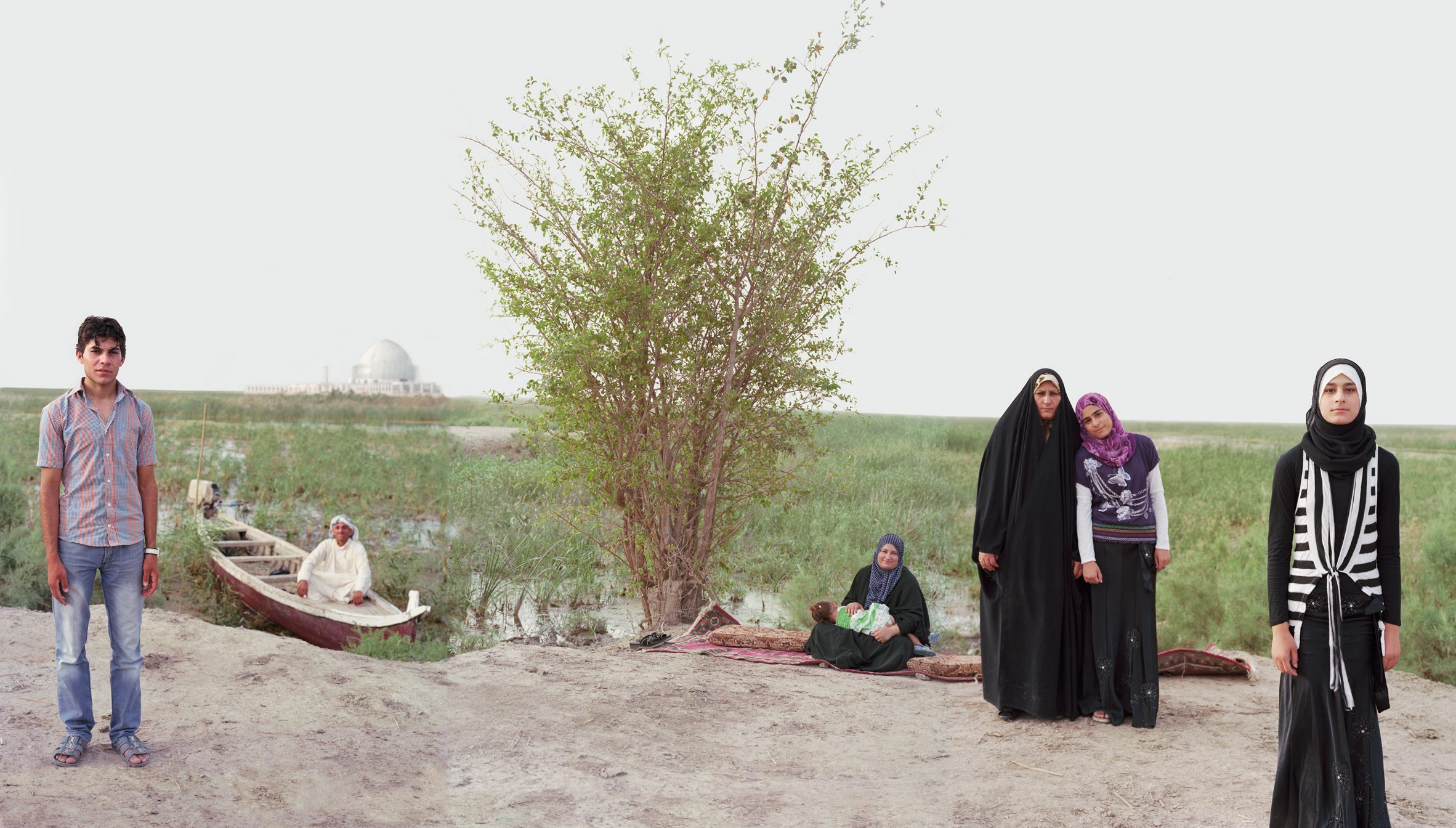
Eden in Iraq
“Eden in Iraq is an incredibly inspiring project that has gotten off the ground against the odds in Iraq’s Mesopotamian Marshes, where the discharge of untreated sewage has polluted the fragile marsh ecosystem and led to disease.
“The wetland garden is designed to use plants to clean the local community’s wastewater. The garden’s ornate symmetrical design takes inspiration from the embroidered wedding blankets of Marsh Arab tribes and their tradition of reed construction for buildings.
“The first construction phase, completed in 2023, demonstrates the potential for nature-based wastewater systems to work at a community level.”
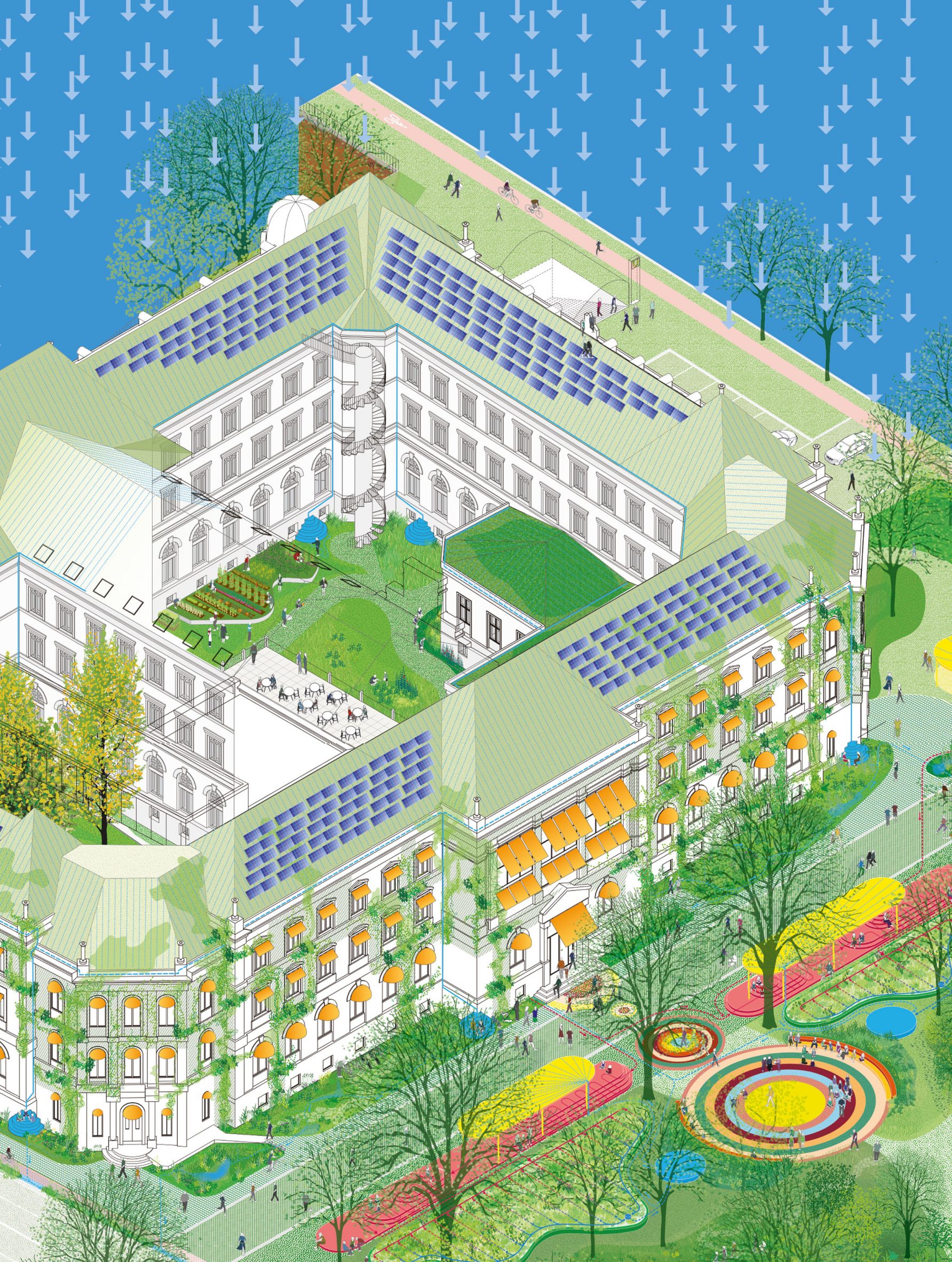
Re-imagine Water Flows by Ooze Architects
“Re-imagine Water Flows is a special commission for the Water Pressure exhibition using the MK&G Museum as a case study to understand the water challenges Hamburg faces and how the building’s water ecosystem could be made more resilient.
“A mural by Ooze Architects shows two versions of the museum – one with its current situation marooned between massive roads and Hamburg’s main railway station and the other illustrating how it could be transformed into a shady green oasis.
“In the studio’s proposal, rainwater and wastewater are recycled to be reused for non-drinking water use inside the building, as well as for irrigating the landscape and recharging the Hamburg aquifer.
“The mural expands to show how Hamburg is threatened by drought and increased risk of flooding that could also affect the river Elbe watershed. It invites us to think about the importance of these common water flows linking countries and cities.”
The top image is by Henning Rogge and the image of the Newlands municipal swimming pool in Cape Town is by Bloomberg via Getty Images.
Water Pressure is on show at MK&G Hamburg from 15 March to 13 October 2024. See Dezeen Events Guide for all the latest architecture and design events taking place around the world.
The post Jane Withers picks five projects that don't "take water for granted" from MK&G exhibition appeared first on Dezeen.
www.dezeen.com










